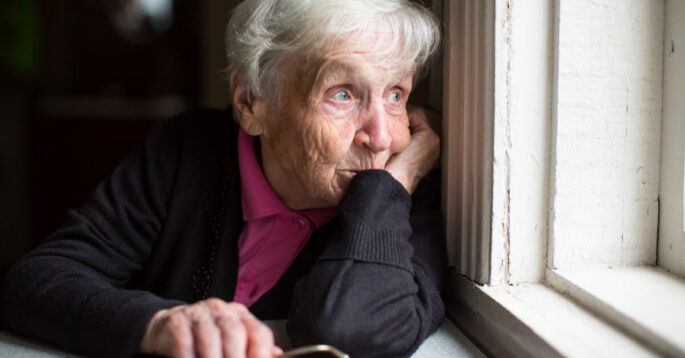Sexual abuse in nursing homes is rare, but it can be extremely harmful, both physically and mentally. Sexual abuse in nursing homes may be committed by anyone — staff, other residents, or even criminals who enter the facility illegally. Below, learn about some of the important facts on sexual abuse in nursing homes.
If your loved one has experienced sexual abuse in a nursing home, the Nursing Home Abuse Center can help you pursue legal justice. Get help from our team right now.
What Is Nursing Home Sexual Abuse?
Nursing home sexual abuse is unwanted sexual conduct from staff, fellow residents, or anyone else. Seniors living in nursing homes are more vulnerable to sexual abuse because they may be living with physical or mental disabilities that prevent them from properly giving consent or defending themselves from an assault.
It is important that families regularly check in with loved ones who live in nursing homes to keep them safe. Nobody ever deserves to suffer from nursing home abuse, whether it be sexual, physical, or emotional.
Concerned family members can look for signs of abuse, including:
- Bruises on the thighs and/or genital area
- Newly developed depression or anxiety
- Unexplained sexually transmitted diseases
The Nursing Home Abuse Center team has compiled four important statistics on sexual abuse in nursing homes to help families understand this problem.
1. Sexual Abuse Is the Least Reported Type of Abuse but a Heinous Reality
Sexual abuse in nursing homes is often underreported compared to other types of nursing home abuse.
According to the World Health Organization (WHO):
- 0.7% of nursing home staff members reported sexually abusing residents
- 1.9% of nursing home residents (or their guardians/loved ones) reported sexual abuse
- Sexual abuse was the least reported type of nursing home abuse
This underreporting can be due to the social stigma around sexual assault or fear of retaliation by the perpetrator. Also, residents with mental or physical disabilities may not be able to recount their experiences and tell the authorities.
2. There Have Been Over 16,000 Sexual Abuse Complaints Since 2000
There were over 16,000 complaints of sexual abuse in nursing homes between 2000 and 2017, according to the Administration for Community Living (ACL). This means that every day, more than two people in nursing homes are sexually abused.
Additionally, the Centers for Medicare & Medicaid Services groups reports of sexual abuse with other types of abuse, making it difficult to see the full extent of sexual abuse within long-term care facilities.
3. Female Residents and Dementia Patients Run a Higher Risk of Sexual Abuse
Female nursing home residents and those with Alzheimer’s or dementia are more likely to be sexually abused, according to the National Consumer Voice for Quality Long-Term Care.
In general, women have a higher risk of sexual abuse than men. The Centers for Disease Control and Prevention (CDC) found that 1 in 4 women have been either raped or suffered an attempted rape, compared to 1 out of 26 men.
People with disabilities were seven times more likely to experience sexual abuse, according to data from the U.S. Department of Justice. Experts believe this is because they may have trouble communicating their experiences or even recognizing that what is happening is wrong.
4. Over 1,400 Sexual Abuse Complaints Are Reported Yearly and Nursing Homes Fail to Investigate
Each year since 2019, more than 1,400 people have reported sexual abuse in nursing homes, according to data from the Long-Term Care Ombudsman Program. This is a large jump in reports compared to 2017, when just over 1,100 reports were filed.
And although many nursing homes take sexual abuse cases seriously, there are far too many that try to sweep issues under the rug.
An investigation from CNN found that 500 facilities where sexual abuse occurred failed to investigate and report allegations of sexual abuse — or did not screen employees for past sex crimes.
Protecting Loved Ones Against Sexual Abuse in Nursing Homes
If you notice any possible signs of sexual abuse of a loved one at a nursing facility, make sure that you take action.
To get started, you can call:
- 911 or the local police department
- Adult Protective Services (APS)
- Local Long-Term Care Ombudsman Program
- State licensing and certification agency (this agency handles nursing home inspections and complaints)
You can also report the abuse to nursing home administrators to make sure there is a record of the incident at the facility. By reporting sexual abuse, you can help your loved one begin the recovery process and ensure that other residents will not suffer.
Finally, family members may want to pursue a nursing home abuse lawsuit on behalf of their loved one to get justice and compensation. Our team at the Nursing Home Abuse Center can determine if you have a strong case and connect you with trusted legal help.
Contact us at (855) 264-6310 or get started with a free case review now.

 Free Case Review
Free Case Review